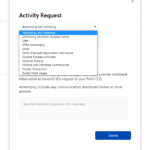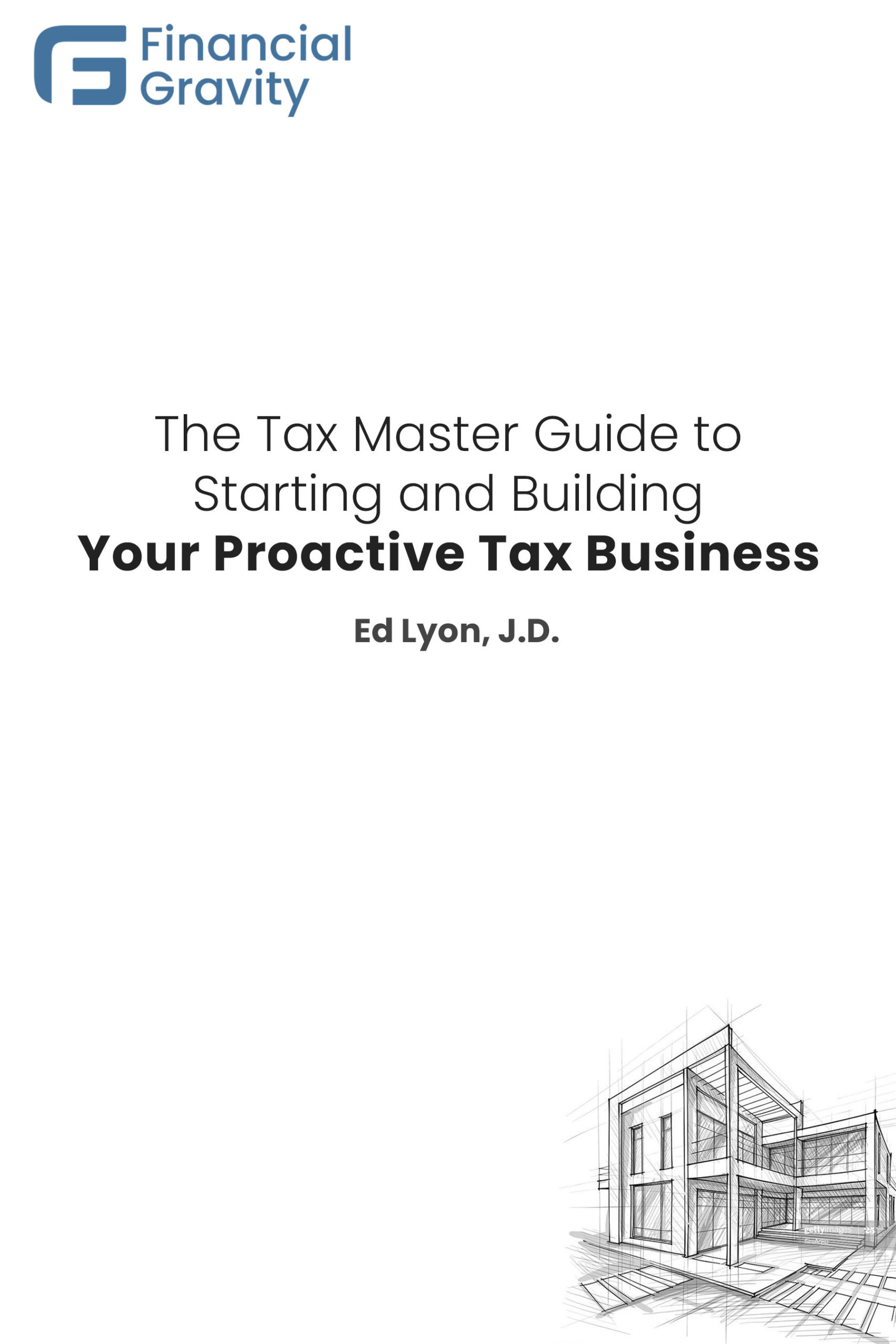Dear CPA
I took a bullet for you. At least I tried to. Not long ago, my CPA took my advice—and fired me. Yes, a senior executive at a firm dedicated to the evolution of tax professionals found himself unceremoniously unhooked from his CPA relationship and in need of professional help with my taxes.
The letter firing us was professional in tone, but not the opening salvo of a negotiation. My CPA firm made it clear: the future of their practice is working with large and complex relationships that need accounting services all year long. It’s not with a once-a-year retail client like me, despite my wife and I filing an 80 page federal return every year. They wished me luck, thanked me for my past business, and that was that.
Let’s stipulate right now: filing taxes is awful for most people. Personally, I’d rather appear as a guest on Jerry Springer. Unless there is a gigantic and profound simplification of tax preparation, I’ll never do my own taxes. The penalties for failure are worse than the pain of the cost. I needed a new CPA.
The good news for me is that I have lots of options. After all, my company owns Tax Master Network, a nationwide network of CPAs and other tax professionals, and my work life brings me into contact with tax pros every day.
I am more familiar with taxes, tax planning, and tax avoidance strategies than most people. I’ve been involved in income and estate planning strategies for multiple decades, and I’m familiar with tax minimization routines designed to minimize the corrosive effects of taxes in investment accounts. I’m not a CPA, but I’m no dummy.
I’m also surrounded by tax experts. One of my partners at Financial Gravity is a tax attorney with thousands of followers, and our investment and business philosophy is taxes first, then math. I consider myself fortunate, because the tax avoidance strategies prescribed for me years ago have been implemented, and I’m confident my wife and I are doing every legal and ethical thing we can to minimize our tax bill. And I’m old school in that I actually believe the supreme court guy who said that taxes are the price we pay for a civilized society.
As I said, I have lots of options. Tax Master Network serves several hundred CPAs, EAs and other tax professionals. I’ve got warm personal relationships with dozens of them. I’m sure one of them would have been happy to help me out, even though I”m not their ideal client.
A lightbulb moment: I would take Turbo Tax up on its offer to do my taxes and I would gain real-life, up close and personal knowledge of what TurboTax is actually offering, and a much more robust understanding of their competitive position.
I took the lady in the blue pantsuit up on her offer to “find every dollar you deserve, guaranteed,” for $399.
I had no illusions about the service I’d receive: $399 is about 60% less than I’ve been paying my CPA to do my taxes for the past several years and about one-third of what I paid for many years before that. My guess was that TurboTax had some sort of artificial intelligence that would read my 2021 return, analyze my 2022 inputs, and kick out the new 2022 return. How else could TurboTax do my taxes for four hundred dollars and make any kind of profit?
I wanted real-life experience. What would the experience be like? Would it be faster, easier, less hassle, and more on my terms, or was this all about price? Were they NetJets or Spirit Airlines? Would I get nickel-and-dimed? Would there be any surprises? I determined I would be the guinea pig and I would let my partners, colleagues, and friends know about my experience.
I spent some time gathering up my tax returns for last year and assembling the information I knew I’d need. If you’ve been filing a Schedule C for years, as we have, you probably have a good idea of what you need to get together. I got a coffee, composed myself, and clicked “Full Service. We do your taxes for you.”
My full-service option was priced at $219 to $399. I had no illusions about what end of that scale I’d be at, but then even top dollar was a big discount from what I had been paying. I clicked on the service I wanted, and the process began. The first step is answering basic questions like “Did you receive a W2?”, “Do you have dependents living with you?” and “Do you own your own business?”
CPAs will guess what the rest of the questions were, including “Did you engage in any cryptocurrency transactions?” These are the same sorts of questions I’ve been asked for decades, the same basic background data any tax preparer would ask. Apparently, that went well because I was then offered a call with a “tax expert.”
My first surprise was that the “expert” was really just a clerk, and she seemed amazed that I wanted full service. She couldn’t seem to get her mind around the idea, and I had to remind her several times that I wanted the full monty. I got the impression that a very small number of people opt for that option.
Eventually, the clerk set an appointment with the next-level tax expert for the next morning. Like the clerk, my desire to use the full service option also took her by surprise. Once we got past that, we spent about two hours reviewing my documents; twice as long as I’ve become used to.
Here’s a takeaway for all you tax pros worried about artificial intelligence wiping out your business: my sense was that there is more artificial intelligence in my toaster than on TurboTax’s platform. In truth, I didn’t see much intelligence at all.
Despite my willingness to engage TurboTax, everything fell apart when I uploaded a late-arriving K-1 into my document file. TurboTax cannot work with K-1 forms, or so they told me, so I was fired—again. My account was locked, it was game over. No referral to a higher authority, no effort to help at all. Not so much as a “good luck, Dave.” I didn’t even get a chance to ask why no one had asked me if we had any partnership income during the screening process.
A Cautionary, and Optimistic Tale for CPAs
Although my experiment ended abruptly, it did teach me a few things, and I suspect tax pros will be glad to know them. For one, Intuit doesn’t want a client; they want a customer. TurboTax is mining the base of the consumer pyramid. The entrepreneurial tax professional is not looking to build a great tax mill in the sky, so it’s possible that the amount of competitive crossover may be very small.
I suspect that some suits at Intuit are meeting somewhere in a mid-rise office park, slicing up their market and slotting customers into product tranches. It seems to me that there are three main cohorts: people who don’t itemize, people who have the energy and the discipline to do their own taxes but want or need some assistance, and full-service people.
TurboTax appears to be going after a large total addressable market. In 2021, over 165 million tax returns were filed. Roughly 51% of tax filers prepare their own taxes, and, and only 30% of tax filers itemize. We don’t need exact numbers to conclude that tens of millions of tax payers are up for grabs.
The good news—the great news, actually—is that TurboTax appears to be focusing on customers you either don’t want or can’t get. And TurboTax is firing the ones you do want, if my experience is anything to go by. They do not seem to want the sophisticated, the complicated, or, generally, the successful.
We should stipulate that Intuit is not stupid. Their gross profit in 2022 was over $10 billion, up almost 30% from 2021. This is a big, smart, deeply resourced company with entrepreneurial leadership. So why mess with 1040EZ customers?
The answer is easy: share of wallet. Intuit knows that there is big money in the American consumer’s wallet. Money for credit reports, loans, personal financial planning and bookkeeping. If they can capture you for tax filing, they can relentlessly market those other things to you. Intuit originated $933 million in small business loans in FY 2022. That’s a big number, but in context, it’s amazing: they did only $232 million in 2021.
Intuit knows exactly what it’s doing, what it’s competing for, and whom it’s competing against. TurboTax is not your competitor. They are the fast food of taxes. Generally speaking, TurboTax doesn’t want to serve the type of client you want.
Your ideal client probably doesn’t need or want a credit report, and they have access to a world of different financial products and services. They spend money with banks, asset managers, and insurance people. Their financial services wallet has tens of thousands of dollars in it.
Unfortunately, if you’re like the majority of tax professionals, your share of your client’s wallet is well below 10%. Meanwhile, salespeople from insurance and product companies are enjoying twenty times the revenues you are. I suggest you begin to think more like Intuit, and use tax compliance as an entree into a much more robust relationship, with many streams of revenue.
Despite all that access and all those relationships, it’s likely that your client is poorly served. This is because it’s unlikely that among all those financial services professionals, there is probably not a single, true fiduciary. What there are is salespeople, with agendas, and they are fighting each other for control of your client.
The result of all that conflict and confusion is often high (and hidden) costs, tax inefficiencies, poor risk control and misaligned risk exposure. Taken together, this crushes gross returns—and creates tremendous opportunities for you, the tax professional.
The wealthiest American families don’t put up with that sort of thing. Instead, they hire a family office to handle their financial lives in an integrated and coherent way. Instead of being sold to, they are bought for. More than anything, this explains how the American billionaire class got much wealthier during the pandemic, while the rest of America got poorer.
Tax pros who transform themselves into Family Office Directors can bring this approach to their clients. This can be game-changing for the tax pro, but it can be life-changing for the clients. There are substantial barriers of knowledge, infrastructure, and marketing that have to be overcome, but a new type of firm, the Turnkey Multi-Family Office Charter provider, offers plug-and-play outsourcing that can speed that transition with very little cost or risk.
Think like Intuit. Broaden the scope of your offers and your assistance to your clients. See your tax strategies implemented with skill and care. And watch your share of wallet multiply.
My old CPA firm failed to ask about my larger financial life. They never wondered if there was anything I could do to restructure things to save on taxes in the future. And when they fired me, they had less than 5% of my wallet. That number is now zero.
My career, my background, and my job in a multi-family office outsourcing company make me less of an ideal client for the modern CPA, but there are millions of people like me, who would love to have a relationship with a tax pro who could act as their own chief financial officer. Tax pros who are smart enough to engage in their own wallet share war have a world of opportunity ahead of them, and at this point in time, no real competitors.




